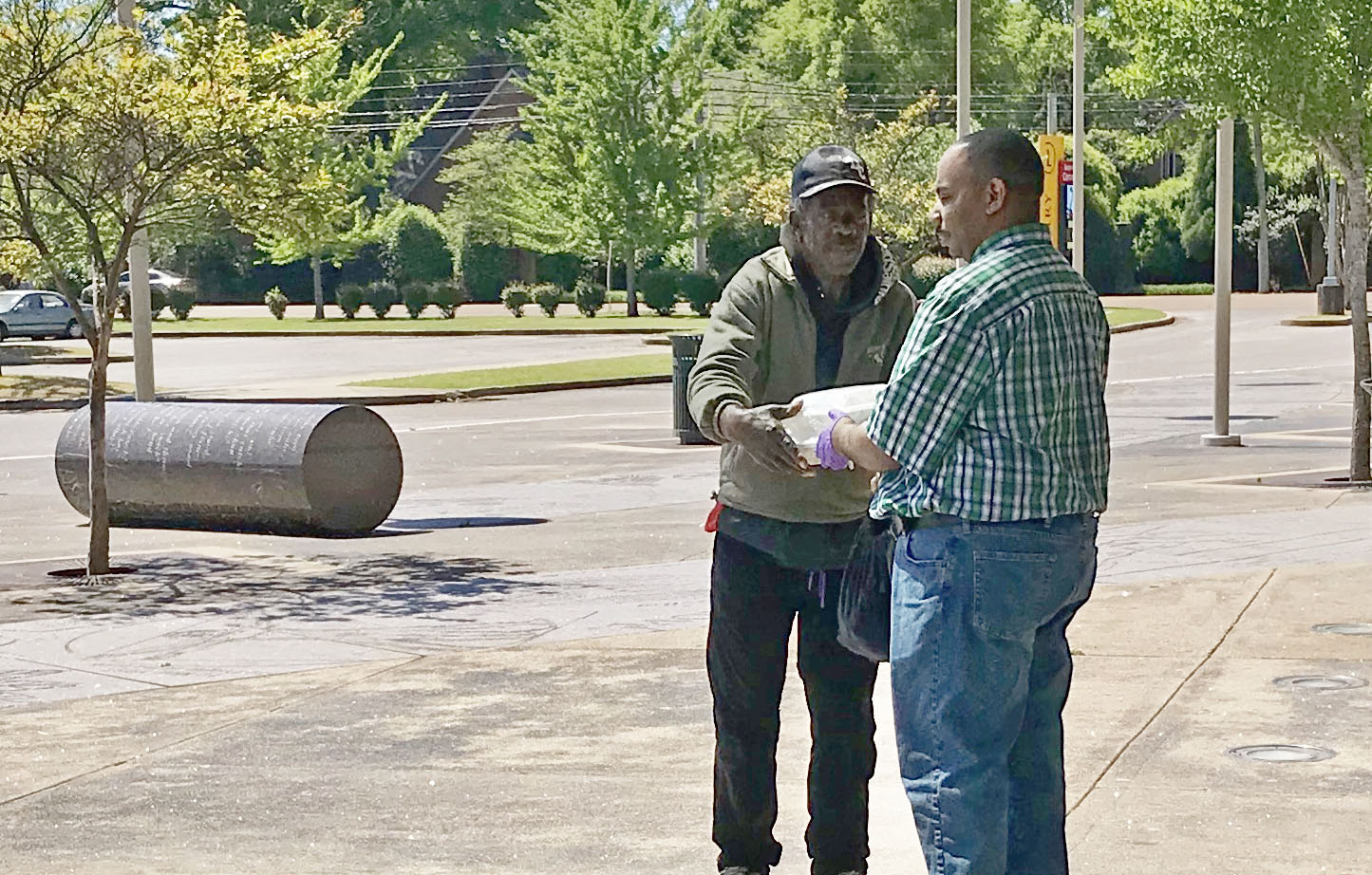Your correspondent continues to report on the COVID-19 Pandemic and how it is affecting the Bluff City with another letter to Colonel John McLeod Keating, managing editor of the Memphis Daily Appeal during the 1878 yellow fever epidemic.
Dear Colonel Keating:
The crisis continues.
The death toll in Shelby County has increased slightly to 39 and the number of COVID cases has risen to 1,857. Grocery stores still have shortages of goods and with so many people out of work some are hungry. For the past few weeks I and my friend Derrick Patterson have been delivering hot meals for the Metropolitan Inter-Faith Association and passing out box lunches at the library. You should see the happy faces of the children and the look of relief on the adults as we hand out the food.

Yesterday there was a poor man taking a nap in the warm sun near the library. When he woke up I asked if he was ready for something to eat. He said he was, and Derrick brought him two box lunches. He was very grateful for the food and also, I think, for being treated like a human being.
I am also still working to document this awful time.
Over the past week I photographed parts of North Memphis, Whitehaven and the Belt Line. Across the city there is, for the most part, a sense of unity and shared purpose. Most Memphians seem determined to isolate themselves because they care about the lives of their families and neighbors. For many the price of this commitment has been high. Thousands have lost their jobs and many businesses have shuttered their doors. Despite this suffering, most Memphians seem to stubbornly refuse to either give in to despair or abandon social distancing.


In opposition to the brave and civic-minded among us, an army of seven descended on City Hall to protest the mayor’s safer-at-home order.
Claiming their liberties were being trampled, they stood in selfish contrast to those who willingly curtailed their freedom of movement for the greater good. The city, county, state and federal governments combined do not have the power to make all of the people stay in their homes all of the time. The people consented to this act because they believe it is the right thing to do.
It is the same spirit you chronicled during the yellow fever epidemic when many stayed to help when they could easily have fled. There is a monument in Memphis dedicated to those who served during that difficult time. The inscription on the monument proudly declares:
“In grateful memory of the sacrifice of the heroes and heroines of Memphis in the 1870s…The acts of love and courage, far beyond the call of duty, merited the gratitude and admiration of the citizens of Memphis, and of the world….”
That is all for now but will write again when there is more news.
I remain,
Your Humble Servant
G. Wayne Dowdy
Photos courtesy Wayne Dowdy.
Memphis author and historian Wayne Dowdy is the Manager of the Main Library’s Memphis and Shelby County Room. He also writes for the local monthly publication Best Times and is the author of several books on Memphis history, including A Brief History Of Memphis, Hidden History Of Memphis, and Mayor Crump Don’t Like It.

